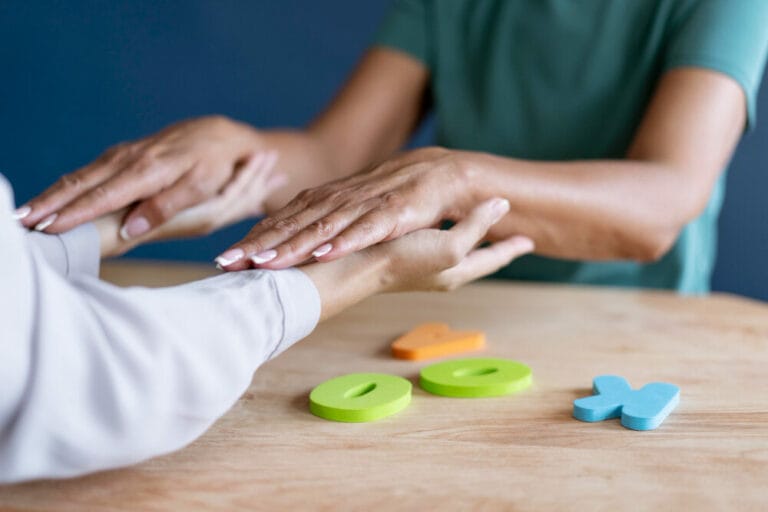Practical steps to extend an olive branch in meaningful relationships
We live in a crowded world but we the loneliness pandemic is not discriminating. What are the practical steps to extend an olive branch in personal relationships that matters to you?

In a world often marred by conflicts and misunderstandings, the symbolism of extending an olive branch stands for hope and reconciliation. Originating from ancient Greek culture, an olive branch represents peace and harmony. It holds immense significance in meaningful relationships, offering a pathway towards healing.
In Greek mythology, Athena, the goddess of wisdom and war, is often depicted carrying an olive branch as a gesture of peace. Similarly, in the biblical narrative of Noah’s Ark, a dove returns to the ark carrying an olive branch, signalling the end of the great flood and the promise of a new beginning. Throughout history, the olive branch has been exchanged as a token of peace during times of conflict, symbolizing the desire for reconciliation and unity.
Forgiveness in personal relationships
When tensions arise and communication breaks down, the act of forgiveness signifies a willingness to let go of grievances and pursue reconciliation. It embodies empathy and a genuine desire to mend broken bonds. Misunderstandings and disagreements are a natural part of the human experience but is a matter of compassion to acknowledge the humanity in each other.
In personal relationships, forgiveness is a healing tool. By letting go of resentment and animosity, you create space for understanding and empathy to flourish. Extending an olive branch requires courage and vulnerability, as it entails opening oneself up to the possibility of rejection or further hurt. However, the rewards of reconciliation far outweigh the risks, as it fosters deeper connections and strengthens the fabric of lasting relationships.
Extending an olive branch is not just a symbolic gesture; it is an art form that requires intentionality and sincerity. Genuine reconciliation involves active listening, empathy and a willingness to discover common ground. It requires you to set aside their egos and prioritize the well-being of the relationship over being right. Through open and honest dialogue, conflicts can be transformed into opportunities for growth and understanding. The process of reconciliation is not always easy, but it is profoundly rewarding, offering the promise of renewed trust and intimacy.
In a world fraught with division and discord, extending an olive branch in personal relationships, holds the power to mend broken bonds, heal wounds and foster deeper connections. By embracing the values of forgiveness, empathy, and humility, you can pave the way towards peace and harmony in your interactions with others. As we navigate the complexities of human relationships, let us remember the profound significance of extending the olive branch—a timeless symbol of peace and reconciliation.
The impact of healthy relationships on wellbeing:
Healthy relationships play a pivotal role in shaping our overall wellbeing and sense of fulfilment. Research has consistently shown that positive social connections are correlated with lower levels of stress, improved mental health and increased longevity. In contrast, strained or toxic relationships can have detrimental effects on our emotional and physical health, leading to feelings of isolation, anxiety, and even depression. By cultivating healthy relationships built on trust, respect and mutual support you can experience greater happiness, resilience and life satisfaction.
Practical steps to extend an olive branch in a personal relationship that really matters
Extending an olive branch in a personal relationship requires both courage and tact. Here are some practical steps to navigate this delicate process:
Self-Reflection: Take time to reflect on your own feelings and motivations. Are you genuinely seeking reconciliation, or are you motivated by a desire to be seen as the “bigger person”? Be honest with yourself about your intentions and emotions.
Choose the Right Time and Place: Timing is crucial when it comes to extending an olive branch. Wait for a moment when both parties are calm and receptive to dialogue. Choose a private setting where you can have an open and honest conversation without distractions or interruptions.
Express Empathy and Understanding: Approach the conversation with empathy and understanding towards the other person’s perspective. Validate their feelings and experiences, even if you don’t agree with them. Acknowledge any hurt or harm that may have been caused and express genuine remorse.
Be Clear and Concise: Keep your message clear and concise when extending the olive branch. Avoid placing blame or dwelling on past grievances. Instead, focus on expressing your desire for reconciliation and moving forward in a positive direction.
Listen Actively: Actively listen to the other person’s response without interrupting or becoming defensive. Validate their feelings and concerns, and be open to finding common ground. Communication is a two-way street, and genuine reconciliation requires both parties to feel heard and understood.
Offer a Gesture of Goodwill: Alongside your words, consider offering a gesture of goodwill to demonstrate your sincerity. This could be a small act of kindness, a heartfelt apology, or a symbolic gesture that holds personal significance to both parties.
Give Time and Space: Understand that reconciliation is a process that takes time and patience. Give the other person space to process their emotions and respond in their own time. Avoid pressuring them for immediate resolution and remain open to ongoing dialogue.
Commit to Growth and Healing: Reconciliation is not the end goal but rather the beginning of a journey towards healing and growth. Commit to fostering a healthy and respectful relationship moving forward. Be willing to address conflicts and misunderstandings openly and constructively.
These practical steps require empathy, humility and forgiveness, paving the way towards greater understanding, harmony and wellbeing for both parties involved in a meaningful relationship.
Do you want to share your story and inspire our readers ? Know that YOUR EXPERTISE is paving the way for a brighter, happier future.




